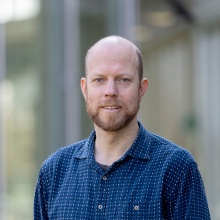Field of Work
The systems biologist Prof. Stefan Legewie combines approaches from cell biology, computer science, biophysics and mathematics in order to analyze complex biological data sets in a holistic approach. He develops mathematical models that describe cellular networks of interacting molecules. By comparing them with experimental data, these models allow insights into disease-relevant changes in these networks, especially in the area of cancer research.
One focus of his research is the quantitative description of cellular heterogeneity at the single-cell level based on genomics and cellular imaging. Through his research, Prof. Legewie was able to characterize how biological systems function robustly despite molecular fluctuations, and when they change their behavior and thus transition into a pathological state. As a second focus, he studies how the activity of genes in the cell nucleus is controlled by complex regulatory networks. Using systems biology approaches based on so-called multi-OMICS data, he was able to characterize tens of thousands of sequence mutations that influence deregulated gene regulation processes in cancer cells.
Personal Information
Stefan Legewie, born 1977 in Aachen, studied biochemistry at the University of Witten / Herdecke. During his studies, he specialized early on in the then young field of systems biology, in which mathematical models are used to interpret experimental data. In 2008, he received his doctorate with distinction (summa cum laude) in biophysics at the Humboldt University in Berlin. In his dissertation he examined cellular information networks that transmit hormonal signals from the cell surface to the cell nucleus, and was able to derive design principles that give these networks robustness and switch-like decision-making behavior. The dissertation was awarded the MTZ Prize for Medical Systems Biology and the Reinhart Heinrich Prize for Theoretical Biology. After a short stay at the German Cancer Research Center, Stefan Legewie moved to the newly founded Institute for Molecular Biology (IMB) in Mainz as a group leader in 2010. There he was able to expand his work on the robustness and heterogeneity of biological systems and also deal with the question of how the activity of genes can be reliably controlled. He has been Professor of Systems Biology at the University of Stuttgart since September 1, 2020.


